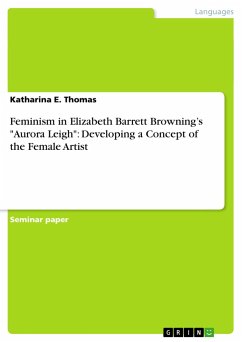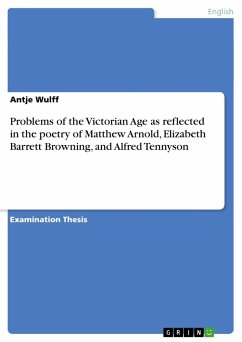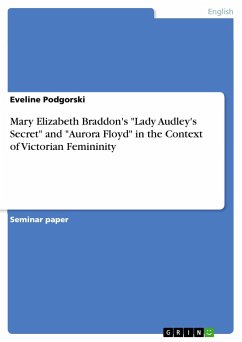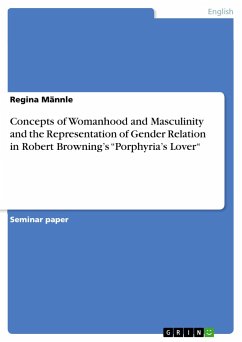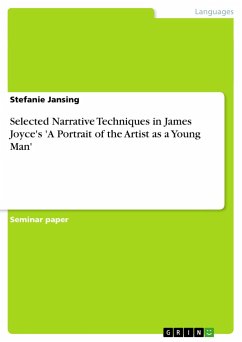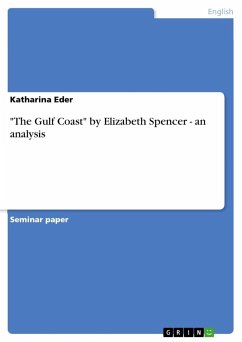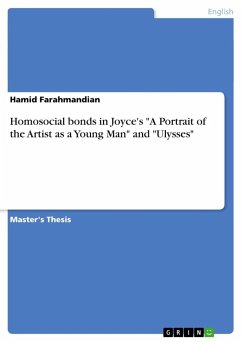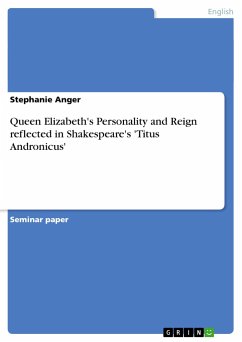Seminar paper from the year 2008 in the subject Didactics - English - Literature, Works, grade: 1,0 (A), The University of North Carolina at Chapel Hill, course: Victorian Literature, language: English, abstract: Elizabeth Barrett Browning's epic poem Aurora Leigh presents a viable feminist ideal. Its heroine, Aurora Leigh, ultimately resolves the dilemma of having to deny love for the sake of her work or vice versa by developing a new concept of the female artist. Although Aurora Leigh offers material for a much broader analysis of feminism, this paper will focus on the main character and narrator, Aurora Leigh herself. Although characters such as Marian Erle and Lady Waldemar also present interesting figures for further study, extending the analysis to them would be beyond the scope of this paper. As this paper concentrates on the feminist ideal in relation to a woman's vocation as an artist, Aurora Leigh best exemplifies this dynamic.Beginning by addressing Aurora's education and early career in order to demonstrate her progression from a traditional concept of love and work, this paper will follow her development as she rejects conventional opposition to arrive at a fuller understanding of life as a female artist. Possible alternative readings, such as the argument that Aurora ultimately sacrifices her artistic strivings for a conventional marriage, will also be discussed in order to support the thesis.

